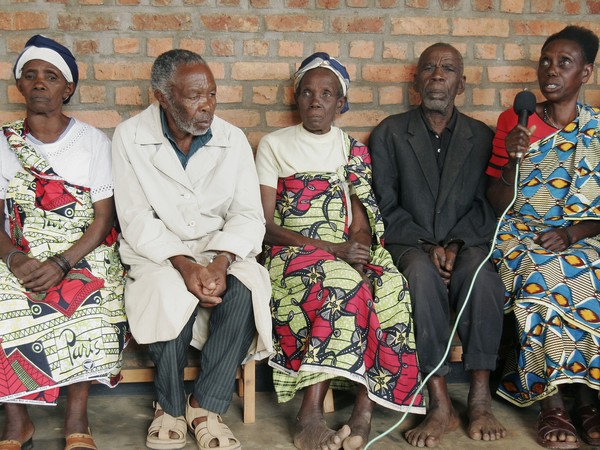Independent evaluation confirms Interpeace’s/IRDP’s work in Rwanda

An independent evaluation commissioned by Interpeace and the Institute of Research and Dialogue for Peace (IRDP) has validated the value and impact of the work in Rwanda. The two authors of the study highlight IRDP’s “distinctive niche or profile” which sets it apart from approaches used by other peacebuilding organizations.
Read the external evaluation (PDF)
The research was undertaken by Serge Rwamasirabo, a Rwandan private consultant who has been working for the past twenty years closely with rural communities. He collaborated with Sue Williams, a special consultant to the Reflecting on Peace Practice programme of the Collaborative for Development Action and to the Folke Bernadotte Academy.
The research is based upon document study, interviews and visits to two of IRDP’s activities in urban and rural areas. The report which was completed in April 2008 finds: “IRDP/Interpeace has established itself as an interlocutor, described in terms as credible, neutral, objective, and accepted. It has been particularly adept at identifying important issues which were controversial or taboo, yet which needed to be discussed in order for Rwanda to progress in the direction of peacebuilding (…).”
The opening of a neutral space for dialogue and debate, both at the base and at the decision-making level, is seen as having a significant impact by most people interviewed for the study. At all societal levels people confirm that non-violent disagreement is now to some extent accepted and may lead to consensus rather than bloodshed, the two authors go on to explain. There appears to be broad consent that IRDP has made itself trusted and influential in the socio-political context. The evaluation also points out areas for further attention, highlighting the fact that the programme faces the challenges of success: “Because the programme has done unusual things very well, there is constant pressure (from within and outside) to continue and to add more. (…) Because the programme is committed to participatory methodologies, it risks being led away from the strategic peace-building focus to take up problems which are real, but not strategic in terms of peace and conflict.”
IRDP and Interpeace have included the findings of the evaluation in the design of the coming phase of the Rwanda programme that will begin in 2009 and end in 2011. Rwamasirabo and Williams conclude that, in spite of such issues of programmatic focus, IRDP’s role of trusted interlocutor will continue to be needed more than ever in the coming years.
